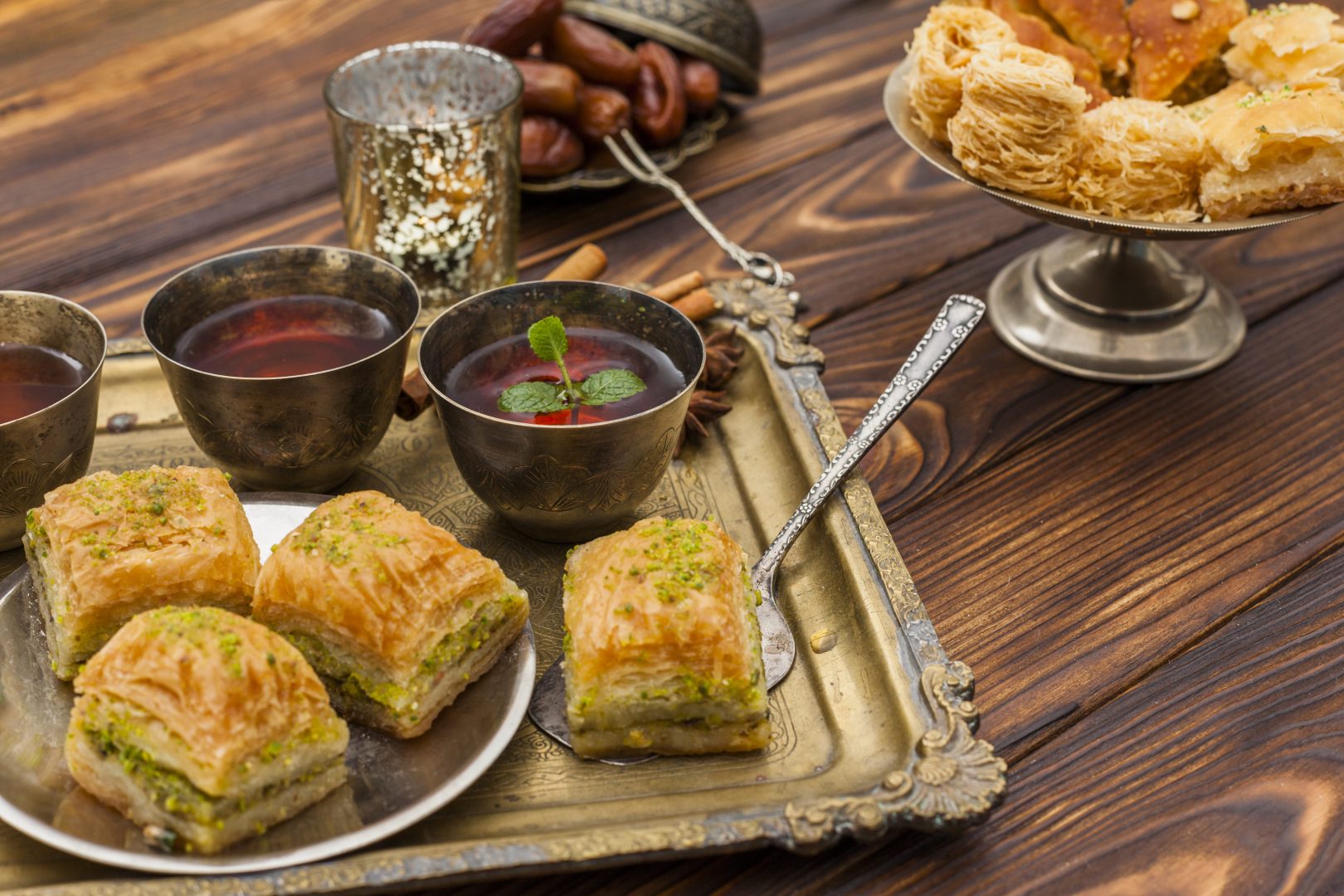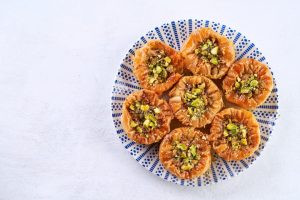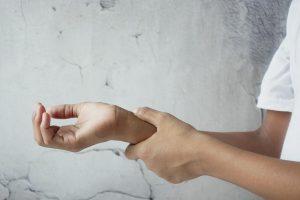
Many people consider that the month of Ramadan is the month of food, due to fasting long hours during the day, and sweets are one of the most important types of foods associated with the holy month of Ramadan, and usually many people eat sweets immediately after breakfast and at the end of the holy month they are surprised by many diseases and weight overload.
Fasting for long hours makes you excessive eating Ramadan sweets, especially oriental sweets, which are distinguished by their distinctive taste, but this is considered a major crime against your health because eating sweets that contain high levels of sugar leads to bad and very disturbing results.
The dangers of eating a lot of sweets during Ramadan:
1- Gain weight
Eating a lot of kunafa, Qatayef, rice with milk and many other sweets causes an increase
Excessive weight, because it is rich in high calories, especially if it contains cheese, nuts and cream
100 gm of konafa contains 400 calories, and every 100 gm of Qatayef contains 330 calories.
Of course, the human body needs sugars, but these sweets contain high levels of sugar and fats
You gain weight significantly during the month of Ramadan, so it is necessary to be in moderation and not to overeat these sweets To avoid obesity and other serious diseases.
2- Indigestion and bloating
Eating iftar directly with intestinal upset immediately, sweets are not useful for the body at all, and they lack value
When food enters the body, a sudden imbalance occurs in the blood sugar level, in addition to causing food fermentation in the stomach
Which in turn leads to intestinal confusion, severe bloating, feeling quickly full and not wanting to eat your main meal. You should know that this problem is not a temporary problem, but often results in other effects
It lasts for long periods and is difficult to get rid of, the most important of which is increasing the size of the abdomen and the appearance of the rumen, as well as increasing the size of the abdomen
stomach.
3- High blood sugar level
Eating large quantities of sweets during Ramadan increases the body’s need for insulin
The continuous rise of this hormone in the body helps to reduce the sensitivity of the body towards it, and leads to an increase in the sugar rate
In the blood, this eventually leads to diabetes.
Studies have confirmed that people who eat sweets and drinks that contain white sugar are more likely to develop diabetes.

4- appearance of the skin very bad
certainly we cannot do without sugar, especially in a month
Ramadan as one of the inherited things in our eating habits during the holy month, but a lot of eating this
Sweets help change the percentage of collagen in the cells of the body, and this causes the appearance of wrinkles and aging
Premature tissues lose their elasticity and make the skin look bad, in addition to the fact that sugar contains an acidity
High causes it to rise in the blood, and from here pimples begin to appear on the face and black heads.
5- Absorb the water in the cells of the body, which causes dehydration and bloating
Under the eye, so it is better to postpone eating sweets until at least two hours after breakfast
It is also better to drink two glasses of water before eating sweets to avoid excessive consumption.
It is necessary to reduce and moderate the consumption of sweets that contain a high percentage of sugar and fried sweets such as Qatayef and replace them with grilled in the oven to avoid obesity and weight gain in Ramadan.
Finally, you should remember the hadith of the Messenger of his God, may God’s prayers and peace be upon him: “A human being does not fill a vessel worse than his stomach, according to the son of Adam’s bites.”
If he does not do that, then one third for his food, one third for his drink, and one third
for himself”.





